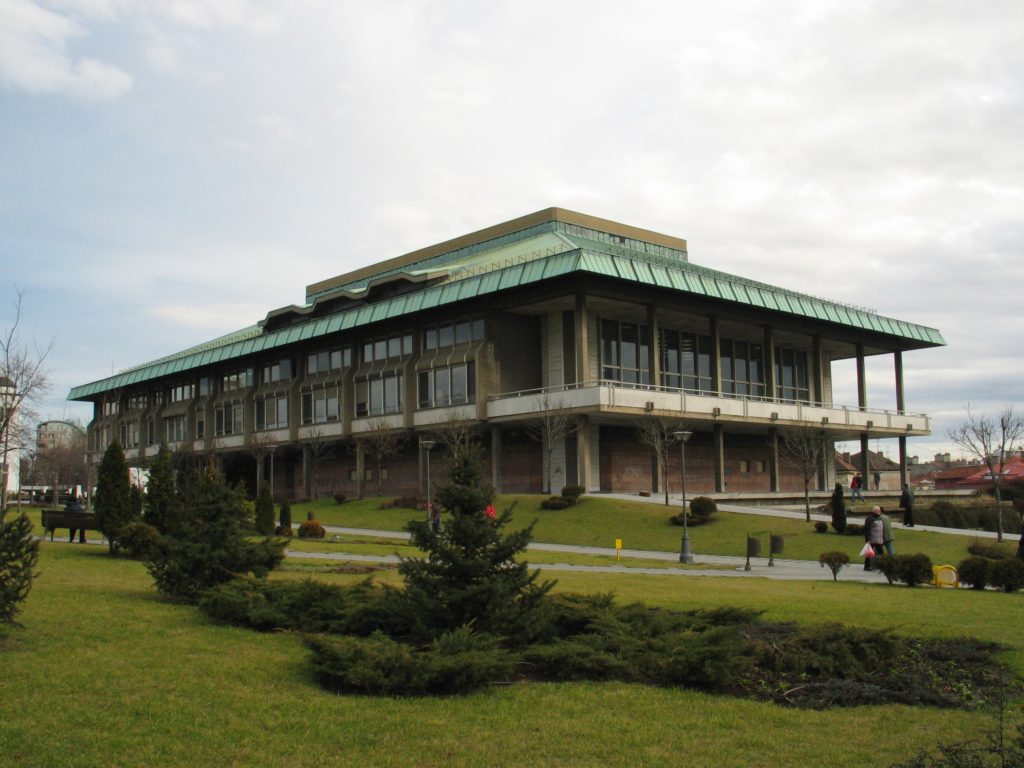- About us
-
- Catalogs and collections
-
-
- Collections
- The Collection of Handwritten Books
- Collection of Early Printed Books
- Reference Collection
- The Early Book, Rare Book and Miniature book Collections
- The collection of more recent literary manuscripts and archival materials
- Legal Information Centre
- Centre for Library and Information Sciences
- Music collection
- Visual Art collections
- Collection of CD Editions
- Cartographic Collection
- The Collection of Photographic Documents
- Other Special Collections
- Legacy Collections
- Collections
-
- Publications
- Services
- Ask librarian
- Contact
A Historical Overview of the Library Directors
The Library’s management has a history intrinsically linked to the institution’s essence and the circumstances under which it has functioned. From its inception, the Library has been under state ownership, which is evident from the names of civil servants who have headed it.
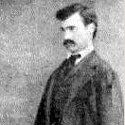
Filip Nikolić served as the state librarian of the National Library, then known as the Library of the Ministry of Education. As the first professional librarian, he worked there from 1853 to 1856. During this time, he compiled the main catalogue, an alphabetical and systematic catalogue divided into 20 groups, which encompassed the Library’s entire collection at the time, amounting to over 8,000 books.
Đuro Daničić was a philologist, a supporter of Vuk St. Karadžić’s ideas and a great admirer of his work. Daničić greatly contributed to the study of the Serbo-Croatian language. He headed the National Library from 1856 to 1859. During his term of office, he defined the acquisition policy stipulating that the Library must acquire every Serbian book and all books about Serbia and Serbs in any language. He also proposed the official name for the National Library in 1859.
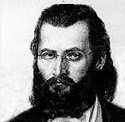
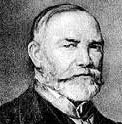
Janko Šafarik was a historian and a professor at the Lyceum in Belgrade. He founded the Belgrade Museum and authored numerous works on Serbian history. He was appointed as the librarian in 1861. Over the following eight years, he introduced many innovations in organising the Library’s collections. He established the acquisition practice through domestic and foreign bookstores, significantly expanding the Library’s collections with invaluable manuscripts and early printed books.
Stojan Novaković was a scholar, diplomat, academician and statesman who served as a Minister of Education. He reorganised primary and secondary schools in Serbia. During his tenure as the librarian (1869–1874), he initiated significant reforms within the institution and advocated for legislation that facilitated its growth and progress. His bibliographic contributions established a benchmark for crafting the national bibliography.
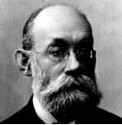

Jovan Bošković was a philologist and academician. He held diverse roles as a professor at the Grand School in Belgrade, the chief editor of the Letopis magazine, secretary of the Serbian Learned Society and Minister of Education. Renowned for his practical approach to philology, he emphasised language purity and style. Upon his appointment as the librarian in 1875, Serbia boasted 52 reading rooms with 7,868 book titles, alongside 53 domestic and 29 foreign magazine titles.
Nićifor Dučić was an archimandrite, national activist, historian, academician, warrior, negotiator, polemicist and translator. He served as the librarian (1880–1886) and head of the National Museum. He bequeathed his entire estate for charitable purposes, primarily benefiting the Serbian Royal Academy (today’s Serbian Academy of Sciences and Arts – SANU). This act established the Dučić Fund intended for rewarding contributions to history.


Milan Đ. Milićević was a writer, historian, folklorist, educator and translator who wrote over 100 books. He gathered a wealth of materials that expand our understanding of the 19th-century life and history of our people. Upon assuming the role of the librarian in 1886, the National Library housed 398 manuscripts, 65 incunabula and early books, 23,900 book titles in 50,000 volumes, 121 newspaper and magazine titles and an assortment of 2,343 maps, images and other library materials.
Dragiša Stanojević, a writer, publicist and politician with a doctorate in law from the University of Bonn, spent an extended period in exile due to his socialist views. He earned acclaim for his outstanding translations and adaptations of classic Italian literary works, such as Dante’s Divine Comedy, Tasso’s Jerusalem Delivered, and Ariosto’s Orlando Furioso. When he concluded his tenure as the librarian in 1900, the National Library had amassed 627 manuscripts, 157 incunabula and early books, 32,702 book titles within 70,706 volumes, 245 newspaper and magazine titles and an assortment of 2,538 maps, images and other library materials.


Stojan Protić was a politician, publicist and statesman. He was also one of the founders and leaders of the Radical Party. He is remembered as a sharp polemicist and talented writer. During his brief tenure as the librarian (1900–1901), the Library had seven employees.
Ljubomir Jovanović taught philosophy at the Secondary School, Grand School and University. He was also an academician actively involved in cultural initiatives. He played a role in establishing the Serbian Literary Association and the Delo magazine. He was also a politician, writer of historical treatises and polemicist. During his tenure at the National Library (1901–1903), he supervised the compilation of a catalogue of manuscripts and early printed books.


Jovan Tomić was a historian, secondary school professor, academician and the librarian of the National Library from 1903 to 1927. He laid the groundwork for the critical examination of the Turkish era in Serbian history. He authored 60 books, pamphlets and numerous articles. The Library holdings had significantly expanded before the outbreak of the First World War. By 1913, the Library held 1,172 manuscripts, 219 incunabula and early books, 49,616 book titles spanning 135,209 volumes, 782 newspaper and magazine titles, as well as 3,863 maps, letters, pictures and various other library materials. Unfortunately, a part of this collection was lost during the war.
Miloš Zečević was a historian, author and professor at the Military Academy. He served as an assistant to the Library head from 1905 to 1914. He wrote biographies, historical debates and articles. Upon assuming the directorship in 1927, the National Library boasted 1,219 manuscripts, 2,268 letters, 220 incunabula and early books, along with an extensive collection of 62,939 book titles across 212,000 volumes, 200,000 newspaper issues and an assortment of 1,490 maps, pictures and other library materials. During his tenure (1927–1935), he implemented regulations concerning the professional state exams for the National Library.


Dragoslav Ilić, a pedagogue, secondary school professor, director of the National Theatre in Belgrade and editor of the National Library journal, served as the director of the National Library from 1935 to 1941. Throughout his tenure, he strove to enhance library facilities, making efforts to evacuate the Library’s most precious collections before the outbreak of the war, although these attempts were ultimately unsuccessful.
Đorđe Radojičić, a writer, literary historian, faculty professor and academician, was renowned for his works on the medieval history of the South Slavs and early Serbian literature. He studied the interrelations among Balkan peoples during the Middle Ages. Radojičić headed the National Library from 1941 to 1945.


Dušan Milačić was a historian of literature and theatre, as well as a novelist. He completed his studies at the Faculty of Philosophy in Belgrade and earned his doctorate in Paris. Milačić headed the Theatre of Niš and later served as the director of drama at the National Theatre in Belgrade. He authored several significant monographs and essays on French theatre and literary figures and translated numerous works by renowned French writers. During his tenure as the director from 1944 to 1960, the National Library renewed its resources, and all library practices were restructured in line with global standards of the time.
Čedomir Minderović was a writer and editor of two magazines (Književnost and Književne novine). He published multiple collections of poetry, plays, essays and journals. Upon assuming the directorship, the Library held 532 manuscripts, 51 copies of incunabula and early books, 375,524 book copies, 6,859 magazine titles, 2,396 newspaper titles, 6,682 archival items and an assortment of 132,500 maps, pictures, postcards and other library materials. He held the position of director from 1960 to 1965.


Milorad Panić-Surep was a writer, journalist and translator. He directed the Institute for the Protection of Cultural Monuments, authored several collections of poems, essays and monographs delving into the figures and phenomena from our literary past, folk literature and medieval records. During his directorship (1965–1968), the construction of a new building for the National Library began.
Svetislav Đurić held various state and societal roles. He was a lawyer, director of the Nolit publishing house, director of the Serbian Literary Association and a parliament member. Đurić authored over 80 works in the realm of culture and librarianship, published both nationally and internationally. During his tenure as the director (1968–1977), the construction of the new library building was completed, prompting the Library’s relocation and reorganisation, as well as a substantial increase in staff numbers. The ten-year development programme, adopted in 1970, embraced global trends in librarianship, emphasising openness to the world and fostering extensive exchange of information, knowledge and experiences with major global library hubs.


Vladimir Stevanović was a philologist with a magister degree from the Faculty of Philology in Belgrade. He was a secondary school teacher at a grammar school and a teacher training school. He served as the Minister of Education from 1972 to 1977. Stevanović studied linguistics, particularly focusing on the dialects of southern Serbia and published numerous papers in professional and scientific journals. He headed the National Library from 1977 to 1979.
Vaso Milinčević was a literary historian. He graduated from the Faculty of Philosophy and earned a doctorate from the Faculty of Philology in Belgrade. He held the position of a university professor and head of the Department of Yugoslav Literature at the Faculty of Philology. He also served as a lecturer in the Serbo-Croatian language and Yugoslav literature at the University of Strasbourg. Milinčević authored numerous books and papers, some of which have been translated into German, Russian, Macedonian and Hungarian. He co-founded and co-edited a magazine dedicated to the history of literature called Književna istorija. He served as the director from 1980 to 1983.

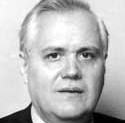
Milan Milutinović had a multifaceted career as a lawyer, a political figure, a member of the Federal Assembly, a member of the Executive Council of the Socialist Republic of Serbia Assembly, the Secretary for Education and Science of the Socialist Republic of Serbia, an ambassador to the Federal Secretariat of Foreign Affairs, an ambassador of the Federal Republic of Yugoslavia in Greece, the Federal Minister for Foreign Affairs of the Federal Republic of Yugoslavia and the President of the Republic of Serbia. He authored the book Universitet – eppur si muove and numerous articles, contributions and papers on education and science, as well as international relations. During his tenure as the director (1983–1988), a study was undertaken to introduce automatic data processing, marking the Library’s initial step toward integrating computer technology into its operations.
Milomir Petrović, a graduate in pedagogy, worked as a school pedagogue and also taught at a teacher training school and a grammar school. He was actively involved in politics, serving in the Serbian Assembly, as the Minister of Education and as a member of the Government of the Republic of Serbia. He contributed articles on contemporary educational and cultural matters to various periodicals. Throughout his directorship at the Library (1988–2001), significant advancements were made, including the development of the electronic catalogue for the National Library of Serbia in 1989, which eventually led to the discontinuation of manual cataloguing for monographic publications in 1991. Additionally, a local computer network was established in 1996, enabling access to the internet and the development of the Library’s first website.


Sreten Ugričić is a philosopher and writer known for publishing prose, theoretical texts, art critiques and socio-critical essays. He spearheaded and oversaw a comprehensive institutional reform of the National Library (the so-called “NBS II concept”). During his tenure as director (2001–2012), the user section of the National Library underwent complete reconstruction.
Dejan Ristić, historian, archivist, translator, Director of the Genocide Victims’ Museum, State Secretary at the Ministry of Culture and Information, Minister of Information and Telecommunications. Founder of the National Library of Serbia Foundation and originator of the National Book Day. He was the acting director of the National Library from 2012 to 2013. He was the author of the vision of the institution’s development. He initiated and realized the complete reform of the institution, which resulted in the National Library of Serbia becoming a multifunctional identity institution of culture. After more than 40 years he initiated and started the comprehensive revision of the National Library of Serbia holdings.


Svetlana Jančić graduated from the Faculty of Philology in Belgrade, specialising in Yugoslav and general literature. She worked at the National Library of Serbia from 1973 until her retirement in 2015 and held the professional title of a library advisor. Throughout her career, she dedicated herself to various cataloguing and organisational tasks associated with preserving and showcasing Serbian literary heritage internationally. Jančić authored numerous works, including textbooks, manuals and guides focused on cataloguing and bibliographic meta-language. Her contributions have earned her numerous professional acknowledgments. She was the acting director of the National Library of Serbia from 2013 to 2015.
Laslo Blašković is a novelist, storyteller and poet. He earned his degree in Yugoslav literature and the Serbo-Croatian language from the Faculty of Philosophy in Novi Sad. Blašković held roles as an editor with the Literary Community of Novi Sad and the Cultural Centre of Novi Sad. He served as the chief editor of the Polja literary and theoretical journal and later became the director and chief editor of the Cultural Centre of Novi Sad. He’s also a member of the Serbian PEN Centre. During his tenure as director (2015–2021), the National Library embarked on a multi-year project involving comprehensive revision of its holdings in preparation for the necessary expansion of its storage facilities.


Vladimir Pištalo graduated from the Faculty of Law in Sarajevo and earned his doctorate at the University of New Hampshire in the USA. He is one of the most significant contemporary Serbian writers. His most renowned works include novels like Tesla, a Portrait with Masks, Millennium in Belgrade, Venice, The Sun of This Day: A Letter to Andrić and The Meaning of the Joker. Pištalo assumed the role of the National Library director in 2021.

